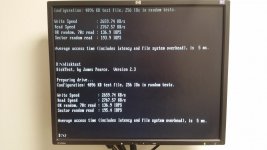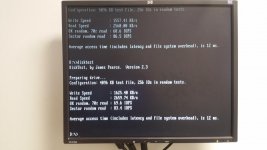That is similar to how some old MFM controller BIOSes behaves. If 2 or more drives are already installed they will refuse to install their own drives. So that's why MODULE_MFM_COMPATIBILITY was added to XUB. This module is not in the official builds so a custom build is required (let me know if you need help with this). Also, this additional code has not been tested (at all AFAIK) - it was added for the very few people that wanted to run old MFM drives together with IDE (yes, I'm looking at you Alecv :D).Question for those familiar with the XT-IDE boot ROM:
Right now this old Adaptec BIOS will not allow more than 2 HDD total in the system. I.e. if you configure Drive C in the system CMOS Setup it will initialize one SCSI drive as D. If you configure Drive C and D in the system CMOS Setup it will print a message saying Drive C and D already installed and do nothing.
Maybe, at least there's a chance if using MODULE_MFM_COMPATIBILITY.If I were to set the system CMOS to no hard drives, and use the XTIDE ROM instead, would I be able to have the Adaptec configure C and D as SCSI drives and then have the XTIDE ROM configure an IDE drive as drive E, as long as it loaded after the boot ROM on the SCSI controller?
Yes, usually. It mostly depends on the other BIOS.So does the XTIDE ROM play nice with other disk ROMs and 3+ drives?


